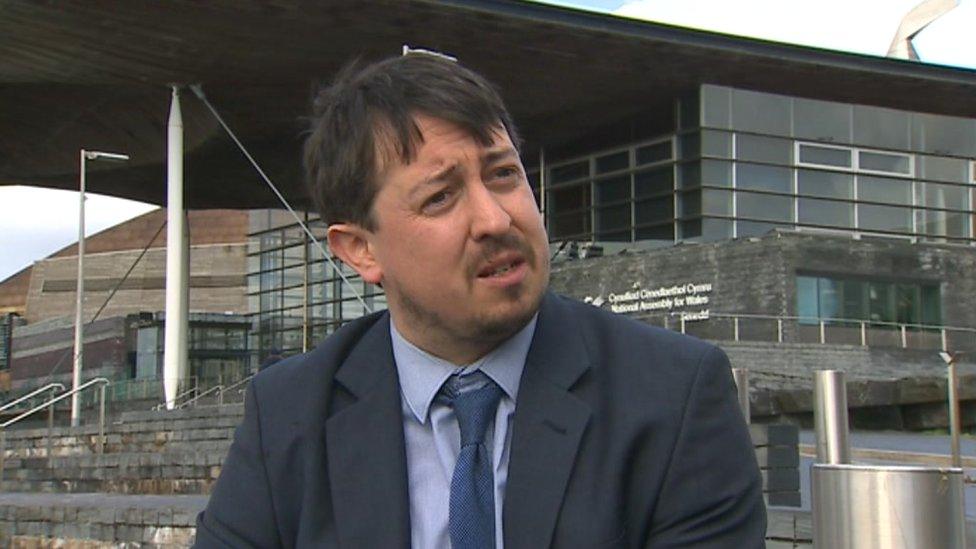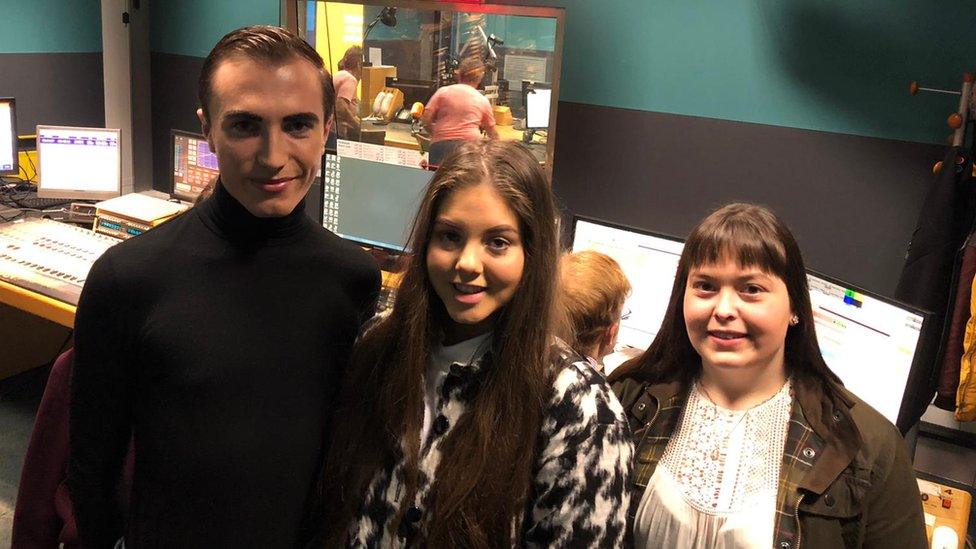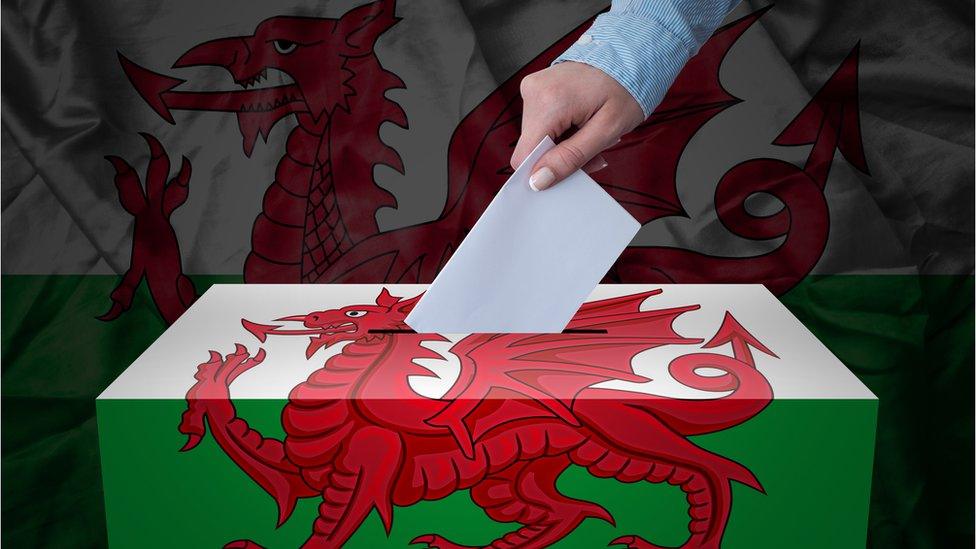Votes at 16: Young people 'confused' by Welsh politics, research suggests
- Published
People give their thoughts on reducing the voting age to 16
Ahead of lowering the voting to 16 for next year's Senedd election, researchers have warned that young people in Wales have a "very limited" understanding of Welsh politics.
In the main, they found, participants assumed the Welsh Government was the same entity as the Welsh Assembly.
Young people also struggled to name the first minister or explain what the Welsh Government does.
Educational resources will be provided to schools across Wales from May.
Researchers from Beaufort Research, external were commissioned by the Welsh Government "to explore knowledge of understanding of politics in Wales".
They spoke to 148 participants including 14-17 year olds, disengaged adults and foreign nationals.
They found that "in the main, participants assumed that the Welsh Government was the same entity as the National Assembly for Wales (where they had heard of both)".
"Where participants had given it any thought, there was also confusion over how the Welsh Government/National Assembly for Wales related to the UK Government," the researchers say.
"There was a good deal of confusion over how the assembly worked and what its relationship was with the UK Government."

Dr Thomas Loughran: "They don't seem to have a great understanding of what the Senedd does"
Separate research carried out by Huddersfield University, involved seven focus groups across Wales with around eight participants aged 16-24 on each.
Of the total number of participants only one was able to name the current first minister; four were able to name their MP.
Nevertheless the same researchers found that 72% of 16 to 17 year-olds did want the right to vote, compared to 12% against.
Dr Thomas Loughran, who worked on the project said: "They're keen to vote but they don't have a very good knowledge of Welsh politics.
"They don't seem to have a great understanding of what the Senedd does, they don't have a very good knowledge of Welsh politicians, who the first minister is for example."
However Dr Loughran added that lowering the voting age could act as "a catalyst" to ensure young people engage with Welsh politics.
"If we look at what's happened in Austria, what's happened in Norway, it does appear that if you do bring votes at 16 in all the evidence shows that you do see a boost in young people's levels of political interest, young people's levels of turnout."

Some comments gathered by researchers:
Asked what he thought the Welsh Government does, one 16-17 year old participant said: "They do the same thing [as the council] but for people who'd rather speak Welsh."
Another responded: "I'm not really clear on what they're doing, but I would think they're just trying to improve Wales as a nation."
Asked about the role of councils, one respondent said: "I don't think politics is to do with the council, it's something to do with the government."

Jess Blair, director of ERS Cymru, the Electoral Reform Society, said a lack of understanding of Welsh politics was a concern across the Welsh electorate.
"What we have to grab onto here is that young people are in school, they are in the perfect stage of their lives to be able to learn this information," she said.
"They're actually really engaged and they're interested in what's going on in politics".
"They just need to be given extra resources to ensure they're so much more informed than we ever were at that age," she added.
The Welsh Assembly will be providing schools with learning materials including animated videos to help inform young people.
- Published27 November 2019

- Published18 May 2019

- Published1 March 2020
